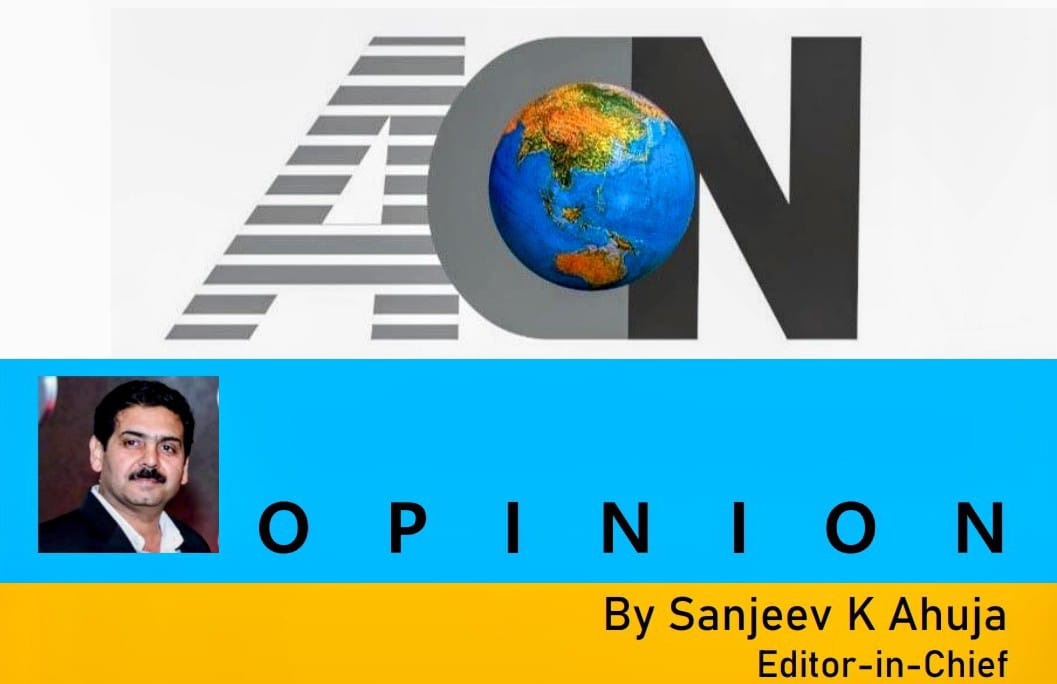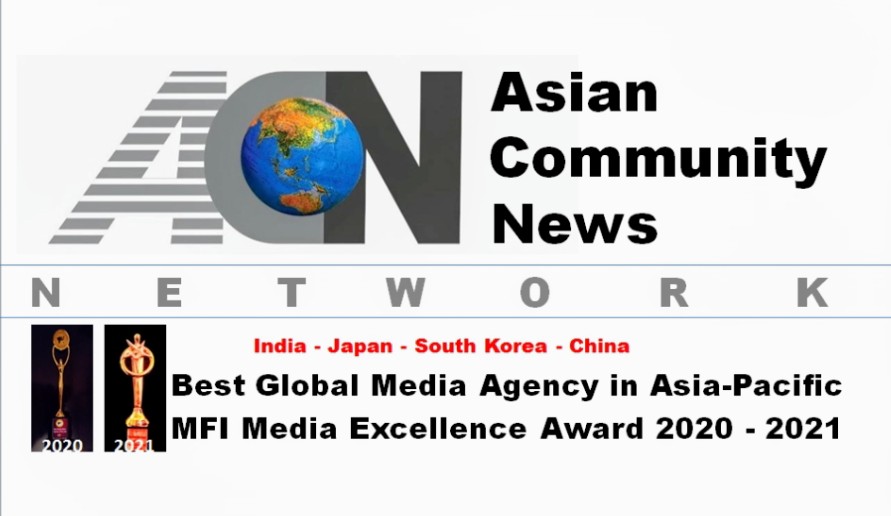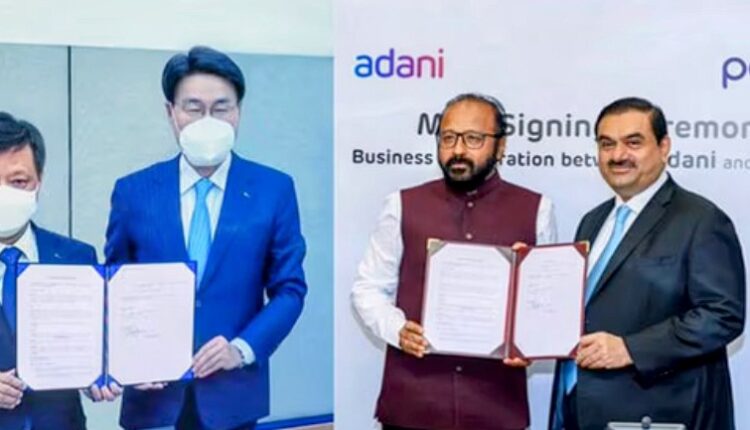Adani-POSCO pact: A landmark development post KIA’s entry in India; May scale up to US$ 20 billion investment
The year 2022, which is a Tiger Year as per the Chinese horoscope followed in South Korea and Japan alike, has taken off with a positive note in the context of India-South Korea bilateral relations.
………………………………………………………………………….
ACN OPINION by Sanjeev K Ahuja, Editor-in-Chief
The Adani Group and South Korean steel major POSCO agreement signed this week is being seen as a turning point in the realm of India-Korea bilateral trade relations to take them to new heights. It has set a tone for both countries for achieving the mutually set ambitious bilateral trade target of USD 50 billion by 2030.
Soon to follow are similar bilateral pacts between the two Asian tigers in chemical and telecom sectors with multi-billion dollars investment, the highly placed sources close to the development have disclosed on the condition of anonymity.
The recent Adani-Posco MoU to set up an integrated steel mill in Gujarat is slated to fetch an initial investment of up to USD 5 billion. However, overall investment together may scale up to USD 20 billion and beyond in a phased manner in the next few years as both sides intend to further collaborate at the group business level in various industries such as renewable energy, hydrogen, and logistics in response to carbon reduction requirements.
Even the proposed integrated steel mill project in Gujarat that is likely to be commissioned by 2026, may end up investing about USD 5 billion in total to match their plans for expanding production capacity.
Further collaboration in renewable energy, hydrogen, and logistics sectors may fetch another USD 10-15 billion or even more investment to realize these projects as Adani Group has ambitious plans for the same.
The inherent Context:
Since 2019, Adani-Posco is a significant development when South Korea’s auto major KIA had entered India with its USD 1.1 billion car manufacturing plant in Andhra Pradesh and made the headlines by successfully launching its cars in the domestic market. However, the following years remained marred with Covid-19-induced lockdown, economic slowdown, and low business sentiments in 2020 and 2021 for India and the global economy.
But it never looked to be the case with the South Korean companies.
 Very interestingly, though, the year 2020-21 witnessed the silent entry of 66 South Korean companies into the Indian market, a crystal-clear sign of what is going to happen in the ensuing years in Indo-Korea trade relations. The number of South Korean companies in India has crossed the 800 mark.
Very interestingly, though, the year 2020-21 witnessed the silent entry of 66 South Korean companies into the Indian market, a crystal-clear sign of what is going to happen in the ensuing years in Indo-Korea trade relations. The number of South Korean companies in India has crossed the 800 mark.
The year 2022, which is a Tiger Year as per the Chinese horoscope followed in South Korea and Japan alike, has taken off with a positive note in the context of India-South Korea bilateral relations.
And there is no stopping now as the very next year 2023 being the Golden Jubilee year of the establishment of the diplomatic relations between India and South Korea and many significant announcements are slated to be made during that year. Both countries would be celebrating the 50th anniversary of their diplomatic relations in 2023.
The logic behind the ambitious figure of USD 20 billion:
Besides integrated steel mill project based on POSCO’s state-of-the-art technology and cutting-edge R&D capability in Gujarat, both sides have plans to further collaborate in renewable energy, hydrogen, and logistics sectors not only in India but also in South Korea and other countries as well.
Besides, the recent non-binding MoU signed by them, Adani and Posco are looking into the various options to cooperate and leverage the technical, financial, and operational strength of each company.
POSCO already runs a 1.8-million-ton cold-rolled and galvanized mill in Maharashtra, and four processing centers in Pune, Delhi, Chennai, and Ahmedabad. Meanwhile, the Adani Group recently announced a massive investment plan to become one of the world’s largest renewable energy companies.
In India, power National grid fed by power generation plants of the capacity of 1 to 2 GW are running on gas to the tune of 20-30 percent of their fuel requirement, and it is a huge chunk of demand which is all set to be replaced by green hydrogen in next few years.
Green hydrogen is also set to be in great demand by the automotive sector as well. And such projects being capital intensive, would for sure require massive investment running in tens of billions of USD.
What a great coincidence:
The Adani-Posco MoU to set up an integrated steel mill in Gujarat that was signed and exchanged virtually on January 13, was originally scheduled to be signed in the presence of Prime Minister Narendra Modi, and Han-Koo Yeo Minister for Trade, Ministry of Trade, Industry, and Energy (MOTIE), and Ambassador Jae-bok Chang, the Republic of Korea during the Vibrant Gujarat Global Summit 2022 (January 10-12). The bi-annual trade show was postponed due to the spreading 3rd wave of Covid-19 pandemic in the state and other parts of the country
The 3-day event was also scheduled to witness the signing of a total of three MoUs between South Korean and Indian companies but the signing of two other MoUs has now been postponed for some time.
Incidentally, the Korean trade minister Han-Koo Yeo was in India on January 12, and he had met the Commerce minister Piyush Goyal to discuss various issues including CEPA, trade deficit, foreign trade barriers, etc.
South Korea has repeatedly reiterated that India is its long-term partner.
In November last, during his address at the 4th India Korea Business Partnership Forum organized by the Confederation of Indian Industry (CII) and Korea International Trade Association (KITA), Han-Koo Yeo had said that as the fifth largest economy, India has continued to play the role of growth engine for the global economy even during the recent economic downturn.
“In 2020, India saw a 13% growth in FDI inflow amounting to a total of US$ 57 billion while global FDI volume plunged by 42 % year on year. In 2021, the Indian economy is forecasted to grow at 10% as well. Korean investment into India almost doubled in just four years from US$ 1.39 billion in 2017 to US$ 2.69 billion for the 4 years after,” said Han-Koo Yeo.
The bilateral trade between India and Korea hovers around US$ 21 billion currently. However, both nations have committed to take the bilateral trade to US$ 50 billion by the year 2030 as was jointly announced by Indian PM Narendra Modi and Korean President Moon Jae-in in 2018.



